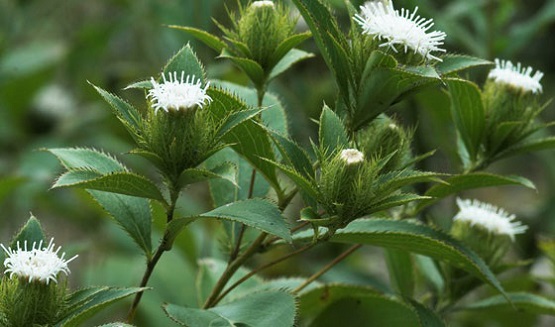Nikhil Prasad Fact checked by:Thailand Medical News Team Aug 12, 2025 6 months, 1 week, 6 days, 1 hour, 20 minutes ago
Thailand Doctors: A Deadly Cancer in Urgent Need of Better Treatment
Cholangiocarcinoma, a lethal bile duct cancer, is alarmingly common in northeastern Thailand, largely due to chronic infection from the liver fluke Opisthorchis viverrini. This cancer is often diagnosed late and resists standard chemotherapy, leaving patients with survival rates below 10%. Current drugs like 5-fluorouracil offer only limited benefit and come with severe side effects.
 Thailand Doctors Discover Herbal Nanotherapy Breakthrough for Bile Duct Cancer
Thailand Doctors
Thailand Doctors Discover Herbal Nanotherapy Breakthrough for Bile Duct Cancer
Thailand Doctors and researchers from the Center of Excellence in Molecular Biology and Pharmacology of Malaria and Cholangiocarcinoma, Chulabhorn International College of Medicine, Thammasat University; the Faculty of Allied Health Science, Pathum Thani University; and The Office of Advanced Science and Technology, Thammasat University have now turned to an ancient Thai medicinal plant for answers. This Medical News report details their promising findings.
Turning a Traditional Herb into a Modern Cancer Weapon
Atractylodes lancea, long used in Thai and East Asian medicine for digestive and inflammatory conditions, contains a compound called atractylodin with known anticancer potential. However, its poor solubility and rapid breakdown in the body have blocked its clinical use. The Thai research team solved this by encapsulating atractylodin inside poly(lactic-co-glycolic acid) nanoparticles—an FDA-approved biodegradable carrier. The resulting atractylodin-loaded nanoparticles (ATD-PLGA NPs) measured around 230 nanometers, had an 83% drug-loading efficiency, and released their contents in a controlled pattern over seven days.
Striking Results in Laboratory and Animal Tests
In lab experiments, ATD-PLGA NPs were far more effective than either free atractylodin or 5-fluorouracil. Against two bile duct cancer cell lines (CL-6 and HuCCT-1), they showed stronger cancer-killing power while sparing healthy cells. They also blocked cancer cell migration and invasion by up to 90% within just 12 hours—critical because these processes drive metastasis. Apoptosis tests revealed that the nanoparticles triggered programmed cell death in 83% of cancer cells, outperforming standard drugs.
Animal studies in mice with human bile duct cancer tumors confirmed these effects. The nanoparticles shrank tumors in a dose-dependent manner and extended survival times. At high doses, they worked as well as or even better than 5-fluorouracil, without severe side effects. Gene analysis showed reduced activity of cancer-promoting and inflammatory genes (like VEGF, MMP-9, and IL-6) and increased production of IL-10, a protective anti-inflammatory molecule.
A Safer and More Targeted Option
Importantly, genetic damage tests showed that ATD-PLGA NPs were far less likely to cause DNA mutations than a standard chemotherapy control. This suggests they could offer a safer long-term treatment option.
Conclusions and Futur
e Outlook
This study shows that nanoparticle technology can transform a traditional Thai herbal compound into a potent, targeted, and safer anticancer therapy. By improving solubility, stability, and delivery, the atractylodin nanoparticles achieved greater cancer selectivity and potency while reducing harm to normal tissues. The researchers note that more work is needed to test this approach in models that mimic human disease more closely and to explore its use alongside other treatments. If future trials confirm these findings, this innovation could become a valuable new weapon against one of Thailand’s most devastating cancers.
The study findings were published in the peer reviewed journal: Polymers.
https://www.mdpi.com/2073-4360/17/15/2151
For the latest on
Thailand Doctors and Thai research, keep on logging to Thailand Medical News.
Read Also:
https://www.thailandmedical.news/news/thailand-doctors-and-researchers-reveal-natural-alternatives-to-hormone-replacement-therapy-for-women
https://www.thailandmedical.news/news/thailand-doctors-discover-herbal-extract-that-could-reduce-lung-inflammation-triggered-by-covid-19-spike-proteins
https://www.thailandmedical.news/news/thailand-doctors-discover-promising-herbal-compound-that-stops-lung-cancer-spread
